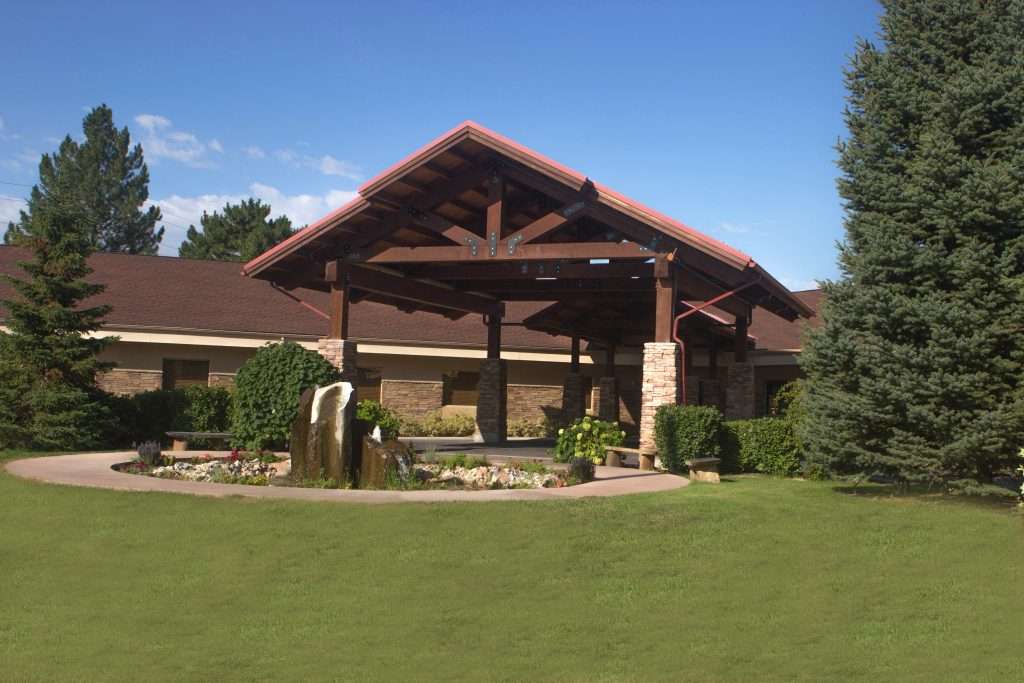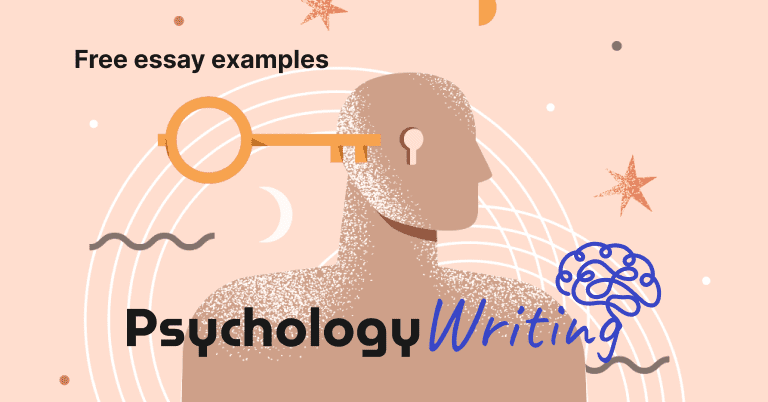It is estimated that more than 14 million Americans have borderline personality disorder. BPD can be challenging, but with the right treatment, you can live a healthy life and enjoy stable relationships. At McLean Hospital, we know what it means to have BPD, and we are here to help.
As the #1 freestanding psychiatric hospital, according to U.S. News & World Report, McLean is a leader in borderline personality disorder care. Since other mental health conditions (substance addiction, depression, anxiety, and eating disorders) often occur alongside BPD, our expert staff focus on treating the whole person.
Call 877.372.3068 to learn more about our borderline personality disorder treatment options. We’ll work with you to find the program that’s right for you and walk you through the admission process.
Leading the Way in BPD Treatment
Borderline personality disorder is a complex mental illness. Individuals experience unstable moods, behaviors, and relationships. People with BPD may struggle with self-image issues, feelings of self-doubt, intense fear of abandonment, and low self-worth.
At McLean, we are dedicated to helping you find your way to leading a full and healthy life. Our expert services combine the highest quality treatment, research, and clinical training. This allows us to provide unparalleled specialty care for adolescents and adults living with BPD.
“McLean’s expertise in the treatment of borderline personality disorder was born out of John Gunderson’s pioneering work that integrated BPD into the Diagnostic Statistical Manual,” said Lois W. Choi-Kain, MEd, MD, director of the Gunderson Personality Disorders Institute.
“As a result, a massive swell of progress in research and treatment development for BPD occurred and transformed the diagnosis from one of stigma and futility to one of hope. Our services represent the expanse of that progress, ranging from shorter-term to longer-term services, many types of reimbursement, and many different evidence-based treatment approaches.”
“There is no other hospital in the world with this degree of diversity in treatment approaches and focused dedication to advancing the cutting edge in terms of BPD’s treatment, training of professionals about the disorder, and scientific discovery to further improve our knowledge base.”
“My colleagues and I know that people with BPD struggle in silence because of lack of awareness, because they don’t have the right information or are afraid of stigma. BPD is a serious but highly treatable illness. There is no better time to start the healing process than right now.”–Blaise Aguirre, MD, Medical Director, 3East Continuum
BPD Treatment at a Glance
McLean’s BPD treatment programs provide comprehensive psychiatric and medical assessments, and individual, group, and family therapy. Customized treatment plans and aftercare planning, medication consultation, and patient education and support round out our world-class offerings.
Assessment
Upon admission, each patient receives a thorough evaluation. Clinicians use these assessments to create tailored care plans and set unique treatment goals.
Group Therapy
Patients take part in our robust group therapy programming. This structured environment helps patients work toward recovery.
Evidence-Based Care
Treatment focuses on methodologies proven by research. Therapies such as dialectical behavior therapy (DBT) and mentalization-based treatment (MBT) are effective for BPD care.
Medication Consultation
Currently, there are no medications approved by the U.S. Food and Drug Administration (FDA) to treat BPD. When indicated, medication can be an important tool in managing specific symptoms, such as anxiety or depression. Patients meet with a psychiatrist as needed.
Support and Education
Our daily educational curriculum promotes prolonged recovery. Resources are available for patients and their loved ones.
Proven Care, Outstanding Results
McLean Hospital is at the forefront of BPD research and care. Our investigators have provided critical insight into the causes and treatment of the disease. Today, they continue to look for more knowledge on the disorder to find improved treatment methods.
McLean’s expert treatment focuses on these proven care models. Our BPD care utilizes dialectical behavior therapy, mentalization-based treatment, transference-focused psychotherapy, and other therapies.
- Dialectical behavior therapy (DBT) is the gold standard treatment for BPD. DBT emphasizes the development of four skill sets. These are mindfulness, interpersonal effectiveness, emotion regulation, and distress tolerance.
- Mentalization-based treatment (MBT) helps patients, with the goal of improving interpersonal and relationships skills and reducing self-destructive behaviors.
- Transference-focused psychotherapy (TFP) focuses on a patient’s contradictory sense of identity. This is associated with problems with interpersonal relationships, self-esteem, and mood regulation.
In addition to therapies that address BPD, group and individual therapy cover a broad range of topics. These can include mindfulness, interpersonal effectiveness, distress tolerance, emotion regulation, and family issues.
The Significance of Family Involvement
Family is an important component of BPD care. Often, parents and siblings need to learn and practice the same skills as their family member with the diagnosis. With the patient’s permission, family members are involved in assessment, care, and aftercare planning.
 McLean is a leader in treatment for teens and adults living with borderline personality disorder
McLean is a leader in treatment for teens and adults living with borderline personality disorder
When a person struggles with BPD, family members and loved ones often struggle as well. It’s common for family members to feel overwhelmed by their loved ones’ symptoms.
Family therapy empowers individuals and their families to work together in more effective ways. In turn, this enables better management of BPD symptoms and improves overall family relationships.
Is It BPD? Or Just Normal Teenage Emotions?
The idea that teens’ personalities are still developing has made diagnosing personality disorders in younger people controversial. But diagnosing adolescents allows them to receive the help they need before they are faced with a crisis. It also allows families to learn how to be supportive of their loved ones.
There are some major characteristics that indicate BPD in adolescents.
“Behavioral dysregulation” is shown when a teen engages in self-injury, such as cutting, burning their skin, or punching walls. Dangerous sexual behavior, substance misuse, and impulsivity are other forms of this risky behavior. For teens with BPD, these actions rarely represent a desire to get attention. Rather, they often provide a kind of relief from emotional pain.
Other signs of BPD include trouble with interpersonal relations and difficulty regulating emotions. These can be seen when a teen has trouble controlling their anger or swings quickly from angry or sad to calm. Those with BPD may also hold irrational or paranoid beliefs. Or they may feel empty or lack a sense of self.
For the adolescent, feeling things more intensely than others or feeling wronged or misunderstood could be signs of BPD. A teenager who feels strong emotions for longer periods than others or takes longer to get back to their emotional baseline may have the condition. When minor issues feel like the “end of the world” and reactions like self-harm, drug taking, or death seem to be the only way to make them stop—this can be a sign of a serious problem.
Teens with these actions and reactions should seek help for their symptoms. McLean offers specialty treatment for teens that focuses on emerging personality disorders and emotional difficulties. Contact us today to learn more about treatment options for adolescents and young adults.
A Patient’s Perspective
Brandon credits the care he received at McLean for saving his life.
Learn more about Brandon’s path toward recovery.
Brandon’s Story
Boys Can Have BPD Too
For years, the general public and many in the psychiatric community have viewed mental illness in boys and mental illness in girls in very different ways.
Societal conditioning, longstanding beliefs about “normal” gender behavior, and other biases may explain why we view boys and girls through different lenses.
This gap between boys and girls is particularly pronounced in the diagnosis and treatment of BPD. The percentage of the population with BPD is about the same for men and women. However, the condition is slightly over-diagnosed in women and significantly under-diagnosed in men.
In general, boys tend to have fewer social and emotional skills than girls. This is often misunderstood and incorrectly attributed to a lack of motivation or to them having bad character. Established stereotypes about the nature of masculinity can lead to BPD being misdiagnosed or missed altogether.
In recent years, this myth that men can’t have BPD has been dispelled. Boys and young men who display signs of BPD should reach out for proper care.
McLean offers one of the only residential treatment programs for young men with BPD. Coed treatment options, as well as other levels of care, are also available. Contact us today and let us help you find the program that’s right for you or your child.
If you or your teen is struggling with BPD, McLean is here to help. Contact us at 877.372.3068 to learn more about treatment options.
Types of Treatment
Types of BPD treatment offered at Sierra Tucson
As an internationally known and respected treatment provider of medical, therapeutic, and experiential services, our center is pleased to offer state of the art treatment for a wide range of behavioral health concerns. Through the integration of evidence-based practices and integrative therapies, our treatment center prides itself on being a leading provider of services that are effective in treating addictions and other behavioral health problems. Holistic and individualized treatment is cornerstone to the best care offered at our center, and is provided by a staff of qualified and experienced. At Sierra Tucson, a premier BPD treatment center, our primary goal is to deliver services in such a manner that all who come to us for treatment will benefit from our services and resume the pursuit of a healthy and productive future.
Our BPD treatment center includes our 15-bed behavioral health inpatient unit, and a 124-bed behavioral health residential treatment center, both of which are situated on the same campus. Residents who require immediate stabilization due to the presence of psychiatric concerns, such as those associated with borderline personality disorder or those in need of medical detoxification can receive these services prior to engaging in our treatment center’s residential care.
The behavioral health residential treatment supplied by our BPD center is designed to elicit the most favorable treatment outcomes for all residents. With five distinct treatment options offered within the residential treatment center, residents can expect to receive the beneficial services they need in order to truly heal. For those who are trying to overcome the debilitating symptoms of anxiety, our treatment center’s Mood and Anxiety Program allows our residents to heal the mind, body, and spirit through integrative and comprehensive treatment. This intensive treatment incorporates both cognitive behavioral therapy and dialectic behavior therapy workshops and continues to provide psychodynamic therapy through their primary process group and individual therapies.
The types of services you receive will be determined by your treatment team. Once an initial assessment has determined that a resident’s needs will be best met through this treatment, they can learn healthy ways of coping with the symptoms of borderline personality disorder and begin to prepare themselves for reintegration into their communities. Additional treatment methods offered in a resident’s treatment plan include:
Medication management: Residents engaged in the Mood and Anxiety Program are seen by a psychiatrist or attending physician at our treatment center on a weekly basis to determine the need for medication, monitor medication, and adjust any medication prescribed in order to ensure optimal alleviation of mental health symptoms, including those associated with borderline personality disorder. Registered nurses and clinical technicians also assist in monitoring a resident’s medication needs.
Individual therapy: Upon entering the Mood and Anxiety treatment plan, each resident is assigned a primary therapist at our BPD treatment whom they will meet with at least once a week. All individual sessions are conducted by master’s level clinicians and licensed psychologists.
Group therapy: In addition to being assigned a primary therapist, each residents is also assigned a small group of peers at our treatment center with whom they will meet four times per week with a primary therapist. In addition to the peer group, other groups are supplied by this treatment plan and may include topics such as:
- Anger management
- Dialectical skills group
- Hygiene
- Coping skills
- Working through grief and loss
- Relapse prevention
- Mindfulness
Therapeutic Recreational Activities: In order to help residents build a stronger sense of self and confidence, our center offers a Therapeutic Recreational Activities Program. This treatment plan includes the following therapeutic activities, which are conducted daily or on a weekly basis to stress the importance of getting physical activity:
- Equine therapy
- Art therapy
- Chi Kung
- Reiki
- Personal training
- Psychodrama
- Yoga
- Movement therapy
- Adventure therapy (including a ropes course and rock climbing wall)
Additional services for purchase: In order to best care for the needs of those in the Mood and Anxiety treatment plan, our BPD treatment center offers a number of additional services that have proven effectiveness in helping people manage the symptoms of their anxiety or mood disorder. The following services are those offered within this innovative treatment:
- Somatic Experiencing® Therapy (SE)
- Sensorimotor Psychotherapy
- Sensorimotor Psychotherapy
- Biofeedback
- Salon
- Acupuncture
- Massage
- Chiropractor
- Psychological testing
- Eye Movement Desensitization and Reprocessing (EMDR)
- Somato-emotional massage (SE massage)
Should a resident require stabilization services while engaged in our center’s residential treatment, they are able to partake in the services supplied by our inpatient program before returning to residential treatment. The staff of professionals conducts an ongoing assessment of each resident’s progress and needs and offers assistance in making this a seamless transition so as to continue the process of healing with as little disruption as possible.



